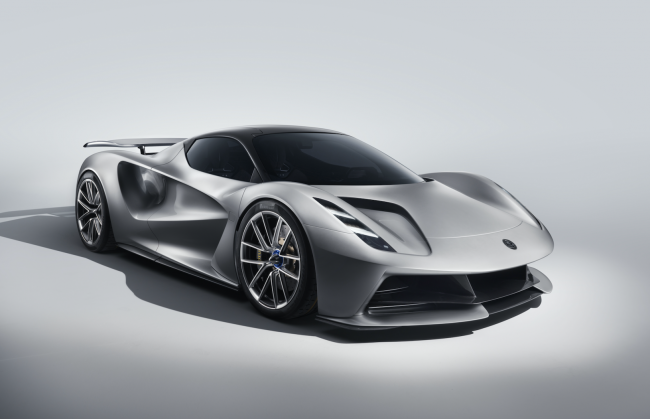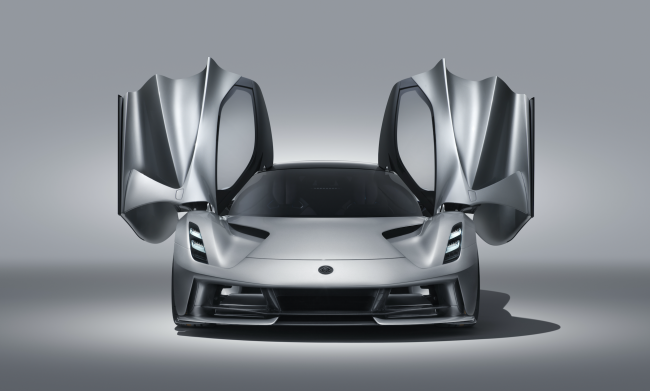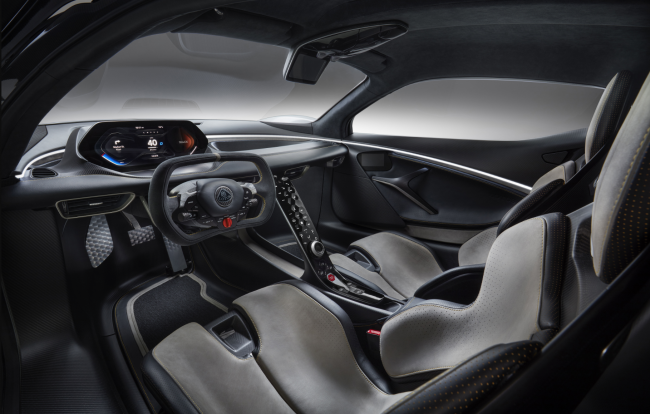3 minute read
Lotus unveils new British-built Evija hypercar
Lotus has unveiled the world’s first fully-electric British hypercar, the all-new ‘Evija’. With unparalleled performance and a target power output of 2,000 PS, the firm says it sets new standards in terms of advanced EV engineering and the most powerful series production road car ever built.
Like all Lotus cars throughout the brand’s storied 71-year history, the Evija has been precision-engineered to deliver an outstanding driving experience both on the road and track. It is the most dynamically accomplished model ever built by the company, setting new standards for Lotus driving performance. Above all else, it is ‘For The Drivers’.

Lotus has unveiled its Evija – the first all-electric British hypercar / Picture: Lotus Cars
As a name, Evija (pronounced ‘E-vi-ya’) means ‘the first in existence’ or ‘the living one’. Many involved in the automotive sector and beyond would argue that is highly appropriate; Lotus has an unquestionable reputation for its pioneering approach in both automotive and motorsport.
The Evija marks the start of an exciting new chapter in the history of an iconic and much-loved British sports car brand. It is the first hypercar from Lotus, and the company’s first model with an electrified powertrain. It is the first completely new car to be launched under the stewardship of Geely – the world’s fastest-growing automotive group.
At the heart of the Evija is an ultra-advanced all-electric powertrain. It has been developed with technical partner Williams Advanced Engineering, famed for success in motorsport, from Formula One to electrifying the first four seasons of Formula E.
Production is limited to not more than 130 examples, making it among the most exclusive cars ever launched. Lotus road and race cars throughout the brand’s seven decades of success have been assigned a Type number – with the figure set in tribute to the car’s project code, Type 130.
Hethel, close to Norwich, has been the home of Lotus since 1966 and the company has confirmed production of the Evija will begin there during 2020.

Evija will be built at the Lotus factory in Norfolk, where production will begin in 2020 / Picture: Lotus Cars
Lotus Cars CEO Phil Popham, said: “The Lotus Evija is a car like no other. It will re-establish our brand in the hearts and minds of sports car fans and on the global automotive stage. It will also pave the way for further visionary models.”
“This is another amazing moment in the history of our company. The Evija is a true Lotus in every sense – it has been developed with an unwavering passion to push boundaries, to explore new ways of thinking and to apply ground-breaking technologies.”
Russell Carr, Design Director at Lotus Cars, added: “We studied how Le Mans race cars use air flow creatively to go over, under and around the vehicle, but also through it. This concept of ‘porosity’ is key to the Evija and has enabled us to create a timeless design with exceptional amounts of downforce.”
Lotus Evija fun facts
• With a target power output of 2,000 PS, the Lotus Evija has more power at each wheel than the total power of any other Lotus road car ever produced.
• The Lotus Evija produces 1,700 Nm of torque. In a tug-of-war, you could put four of the Lotus Evora Sport 410 at the other end of the rope and still not out-pull it.
• At the heart of the Lotus Evija is a 2,000 kW battery. That means it’s eight times more powerful than a Formula E race car. Put another way, it’s enough electricity to boil more than 1,600 domestic kettles.
• The ‘mid-mounted’ positioning of the battery pack provides advantages in terms of aerodynamics and weight distribution to optimise handling. It also echoes the celebrated Lotus mid-engined sports car layout.
• The Lotus Evija has a Venturi tunnel through each rear quarter. These are named for the Venturi Effect, the reduction in air pressure which results when it flows through a constricted section of a pipe. It was discovered by Giovanni Venturi, an Italian physicist, in 1797 – exactly 222 years ago.

With production limited to just 130 cars, the Evija is priced from £1.7m plus duties and taxes / Picture: Lotus Cars